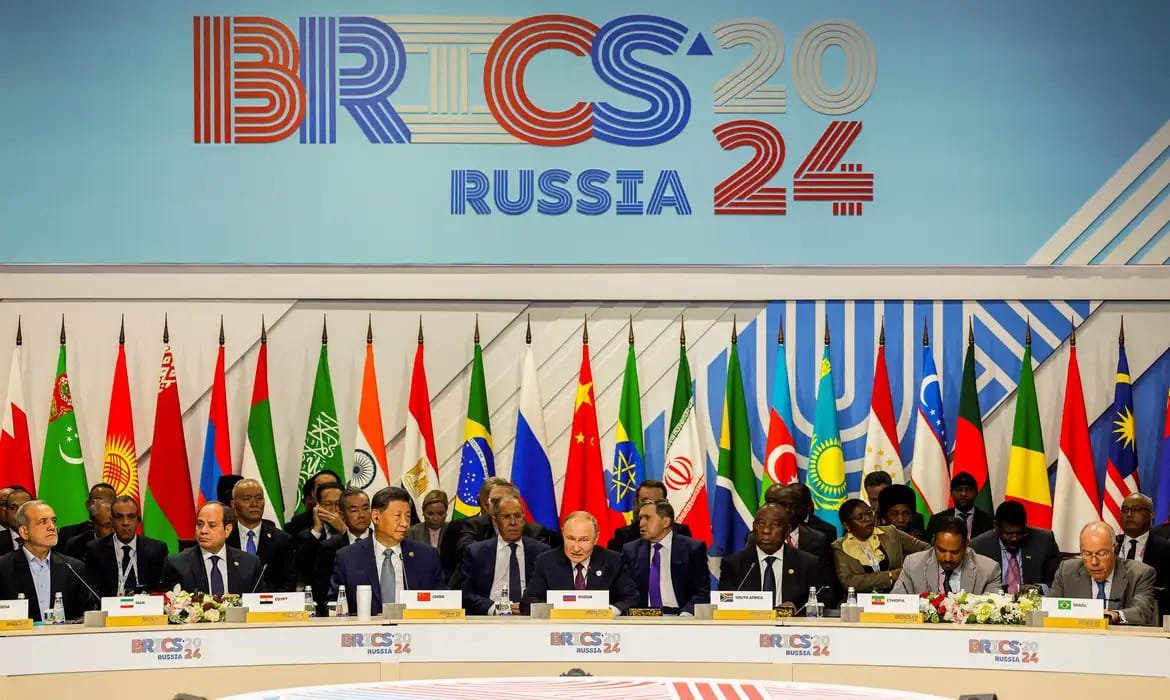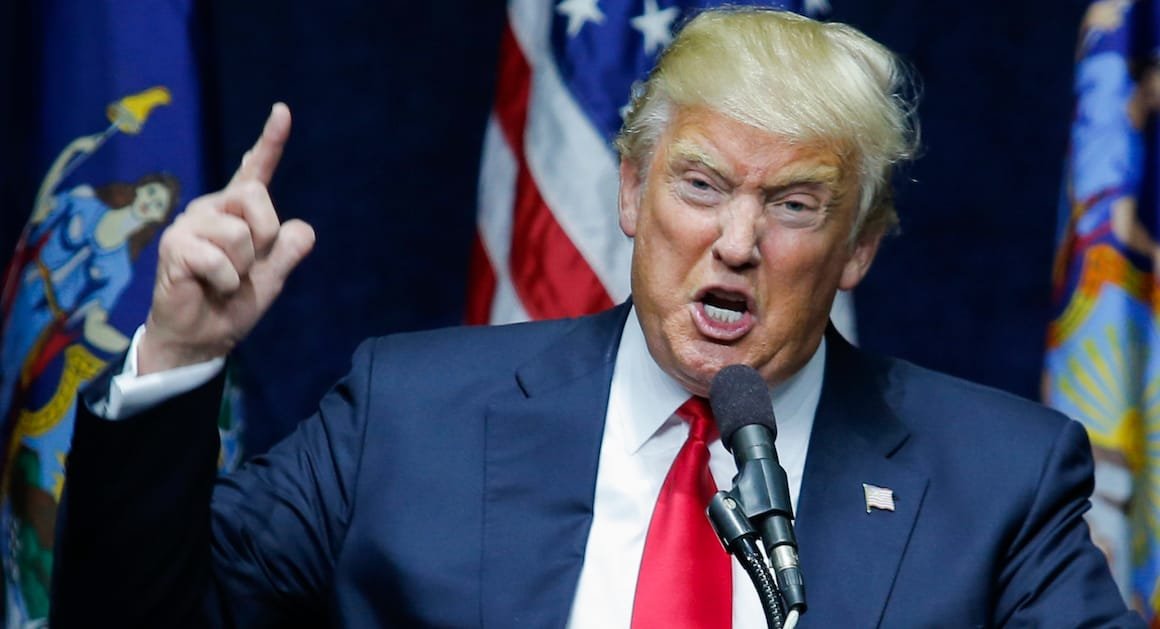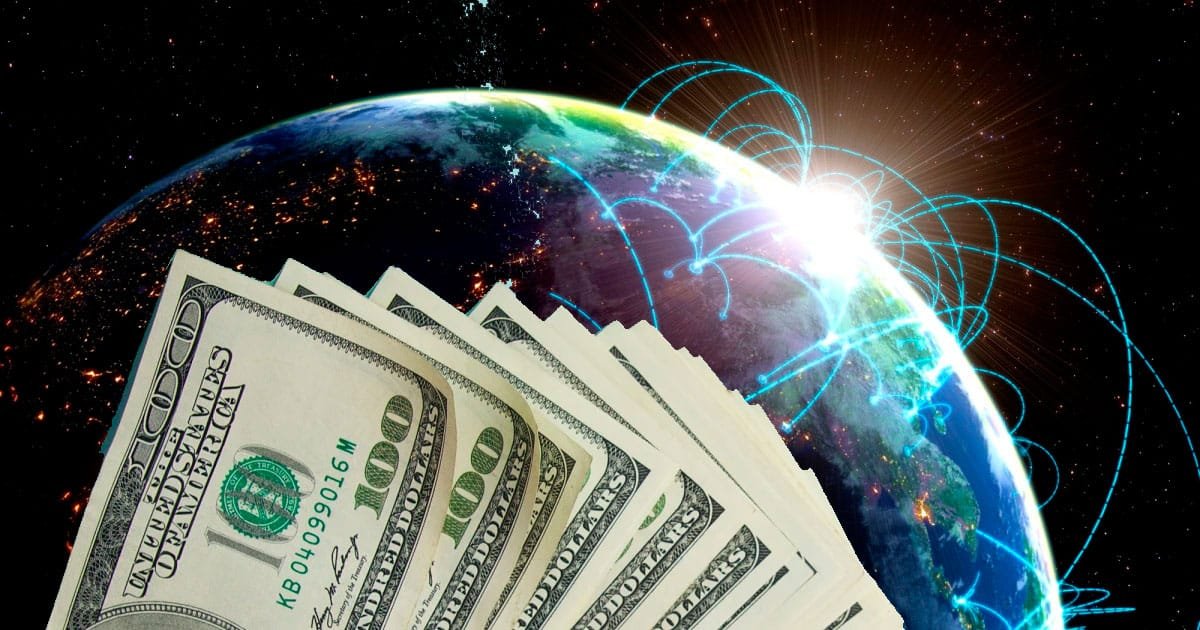TRUMP HAS THREATENED BRICS WITH 100% TARIFFS IF THEY ATTEMPT TO REPLACE US DOLLAR AS RESERVER CURRENCY! THIS IS VERY SERIOUS STUFF FOLKS! LEARN MORE….
The US Dollar (USD) has long held the dominant position as the world’s reserve currency, meaning that it is the primary medium of exchange for international trade, investment, and foreign exchange reserves.
This status has provided the United States with numerous economic benefits, including lower borrowing costs, greater geopolitical influence, and the ability to run trade deficits without facing immediate negative consequences. But what would happen if the US were to lose this privileged position?
The Power of the US Dollar: A Brief Overview
As the world’s reserve currency, the US Dollar is held by central banks globally as part of their foreign exchange reserves. It is used in nearly 90% of all international transactions, from oil sales to trade agreements between nations.
This dominance of the USD has allowed the United States to maintain a unique economic advantage. Since countries need to hold US dollars to facilitate international trade, the US government can borrow more cheaply and run persistent trade deficits without the same immediate risks faced by other nations.
This situation has also allowed the US to impose economic sanctions more effectively, using its control over the global financial system to pressure foreign governments. For instance, the US has leveraged the dollar’s supremacy to impose sanctions on Iran, Russia, and other countries, limiting their access to international financial markets.
 BRICS is an intergovernmental organization comprising nine countries – Brazil, Russia, India, China, South Africa, Iran, Egypt, Ethiopia, and the United Arab Emirates. BRICS was originally identified to highlight investment opportunities. The grouping evolved into a geopolitical bloc, with their governments meeting annually at formal summits and coordinating multilateral policies since 2009. Relations among BRICS are conducted mainly based on non-interference, equality, and mutual benefit.
BRICS is an intergovernmental organization comprising nine countries – Brazil, Russia, India, China, South Africa, Iran, Egypt, Ethiopia, and the United Arab Emirates. BRICS was originally identified to highlight investment opportunities. The grouping evolved into a geopolitical bloc, with their governments meeting annually at formal summits and coordinating multilateral policies since 2009. Relations among BRICS are conducted mainly based on non-interference, equality, and mutual benefit.
The Emerging Threat from BRICS
Recently, however, a growing coalition of emerging markets—known as BRICS (Brazil, Russia, India, China, and South Africa)—has been taking steps to challenge the dominance of the US Dollar in global trade.
These countries, along with others like Saudi Arabia, have been exploring alternatives to the USD, such as creating a new common currency or boosting the use of their national currencies in global trade. China, in particular, has been pushing for the internationalization of the Chinese Yuan, while Russia has increasingly conducted trade with other countries in its own currency.
The push by BRICS nations to reduce their reliance on the US Dollar reflects a broader trend of de-dollarization. Countries are motivated by a variety of factors, including reducing their vulnerability to US sanctions, enhancing their economic sovereignty, and diversifying their foreign exchange reserves.
 US President-Elect Trump just threatened BRICS with 100 Tariffs if they attempt to replace to the US Dollar as the reserve currency. Is it too late?
US President-Elect Trump just threatened BRICS with 100 Tariffs if they attempt to replace to the US Dollar as the reserve currency. Is it too late?
Trump’s Response: A Warning to BRICS
In response to these growing efforts by BRICS to challenge the USD’s supremacy, President-Elect Donald Trump has issued strong warnings. According to reports, Trump has threatened that if BRICS nations push forward with plans to move away from the dollar, he would impose punitive measures, including 100% tariffs on imports from countries involved in undermining the US Dollar’s status.
Trump’s statement was particularly pointed, emphasizing that any coordinated effort to de-dollarize the global economy would be met with significant economic retaliation. Such threats are in line with his “America First” trade policies, which aim to protect American interests and assert the country’s economic dominance.
A 100% tariff on imports from key BRICS members would be a radical and disruptive move, effectively doubling the cost of trade with these countries and potentially sparking a global trade war.

Economic Consequences of Losing the Reserve Currency Status
If the US were to lose its position as the world’s reserve currency, the economic impact would be profound:
- Higher Borrowing Costs
The US government has benefited from low borrowing costs, as foreign governments and investors have purchased US Treasury bonds to hold in their reserves. Without the demand for the dollar, the US may face higher interest rates on government debt. This could result in a significant rise in the national debt and reduced fiscal flexibility for future administrations.
- Inflationary Pressures
Losing the dollar’s dominance could lead to inflation. As demand for the dollar decreases globally, the value of the dollar could fall, making imports more expensive. This would result in higher prices for consumers and could erode American purchasing power.
- Weakened Geopolitical Influence
The dollar’s dominance has allowed the US to project power globally through economic sanctions and financial influence. Without the reserve currency status, the US could lose some of this leverage, as countries and organizations would no longer need to rely on the US Dollar for trade or reserve holdings.
- Impact on US Exports and Trade Deficits
One of the key benefits of the dollar being the global reserve currency is that it allows the US to run trade deficits without the same negative repercussions that other nations might face. If the dollar loses its status, the US could see a reduction in its trade deficit, but this would come at the cost of making American exports more expensive and less competitive in international markets.
- Shifting Economic Alliances
A decline in the dollar’s dominance could lead to the formation of new economic alliances as countries seek alternatives to the US-led financial system. BRICS countries, for example, could create a new currency bloc or trade system that excludes the dollar, which could alter the global economic order and potentially shift power away from the US.

How Will Losing the US Dollar as a Reserve Currency Affect Average American Citizens?
Losing the US Dollar as the global reserve currency would have significant effects on everyday Americans, impacting their finances, cost of living, and economic stability.
- Higher Costs for Goods and Services: As the demand for the US Dollar decreases globally, its value could drop, making imports more expensive. Americans would feel this through higher prices for goods such as electronics, cars, and clothing, especially those imported from countries that no longer use the dollar in trade.
- Rising Inflation: A weakened dollar would also lead to inflationary pressures. Everyday items like food, gas, and utilities could see price increases, reducing purchasing power and stretching household budgets.
- Increased Interest Rates: With a reduced demand for US debt, the government may face higher borrowing costs, which could trickle down to consumers in the form of higher interest rates on mortgages, car loans, and credit cards. This would make borrowing more expensive, potentially slowing down consumer spending.
- Job Losses and Economic Slowdown: Higher inflation, increased borrowing costs, and reduced demand for US exports could lead to slower economic growth. This could result in job losses, particularly in industries dependent on international trade, and a decline in real wages as businesses struggle to cope with rising costs.
- Weakened Global Influence: The US Dollar’s dominance has allowed the US to project economic power globally. Without it, the US may lose some of its geopolitical influence, which could affect global stability and, by extension, American citizens’ security and international relations.
Losing the dollar’s reserve currency status would likely mean higher costs of living, reduced economic growth, and increased financial uncertainty for the average American. The broader consequences could include shifts in global power dynamics that directly or indirectly impact American citizens’ daily lives.

Conclusion: The Stakes Are High
The battle over the future of the US Dollar as the global reserve currency is a high-stakes game. While the US has historically enjoyed the benefits of this status, the rise of alternatives such as the Chinese Yuan and the efforts of BRICS countries to diversify away from the dollar could pose a real threat to American economic dominance.
President-Elect Trump’s warnings to BRICS—coupled with the possibility of 100% tariffs—are an indication of just how seriously the US views this challenge. However, as the global financial system evolves, the US may find it increasingly difficult to maintain the dollar’s dominant position without making significant adjustments to its economic and trade policies.
In any case, the prospect of losing the US Dollar as the world’s reserve currency would fundamentally reshape the global economy, and the United States would need to adapt to a new financial landscape where its currency is no longer the uncontested king of global trade.
The road ahead will require careful diplomacy, economic reform, and perhaps most importantly, a recognition that the rules of global finance are shifting in ways that may no longer favor the US as they once did.

SOURCES
- “The Dollar’s Reserve Currency Status: A Blessing or a Curse?” – Council on Foreign Relations
URL: https://www.cfr.org/
- “BRICS to create a new reserve currency, could challenge US dollar dominance” – Reuters
URL: https://www.reuters.com/
- “The Geopolitics of the Dollar” – The Atlantic
URL: https://www.theatlantic.com/
- “Why the US Dollar is the World’s Reserve Currency” – Investopedia
URL: https://www.investopedia.com/
- “The Effects of a Weak Dollar on the U.S. Economy” – Federal Reserve Bank of St. Louis
URL: https://www.stlouisfed.org/
- “China and Russia’s Push to Ditch the Dollar” – CNBC
URL: https://www.cnbc.com/
Charles Bivona Jr., aka Coach JP Money, is a business strategist, financial coach, and founder of CoachJPmoney.com. A lifelong entrepreneur, he launched his first real estate deal at 17 and went debt-free by 1998. Since then, he has built national media brands, advised small businesses, and helped clients grow online using smart strategy, digital tools, and creative grit.
An expat living in Baja, Mexico, Charles also writes and produces music as Johnny Punish and lives off-grid at Hacienda Eco-Domes, a sustainable retreat he built with his wife. Through providing small business services, coaching, writing, and podcasting, he’s on a mission to help others win their future—on their terms.
Read his full bio at PunishStudios.com >>>
Post Views: 91